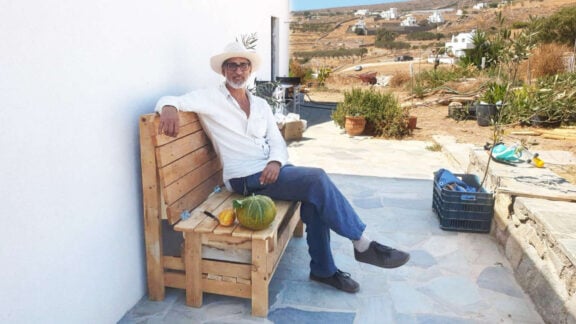Economies which hire healthy, older workers are not only stronger, but thrive, according to Global Population Ageing: Peril or Promise, a new publication released at the World Economic Forum.
The book states that economies hiring elderly workers receive a “longevity dividend” and also decrease welfare spending. It detailed that mature age employees are equally as productive as their younger counterparts, quashing the notion that the younger the age, the more output of work is done.
Bill Papastergiadis, Melbourne Managing Partner of law firm Moray & Agnew told Neos Kosmos he hasn’t seen any differentiation between the work productivity of any of his staff dependant on age and adds that this is more so evident in the legal game: “we measure the output of staff down to the minutiae so we are able to pick up people who aren’t pulling their weight in terms of their recording of hours and work and I haven’t seen any discernible difference between the ages”.
Aware that mature age workers will benefit the economy, and also in a bid to stop any discrimination in age when hiring, the Australian Government has set up various policy reforms, such as the introduction of a new Commissioner for Age Discrimination, to assist the older population back into the work force. But when it comes to the hiring of older employees, an Australian study has shown that more than one-third of workers aged 50 and over received age discrimination in the workplace.
The study, conducted by the Financial Services Council, said that three in ten of employees surveyed experienced discrimination by facing dismissal and redundancy before younger colleagues. Whilst age is still viewed as a negative criteria by employers, the government has a number of programs to assist the mature age worker gain employment including More Help for Mature Age Workers and the Experience Plus career advice service.
At least half of the staff in Mr Papastergiadis’ office are over the age of 40 and he says that he looks upon older employees favourably and never discriminates against age when choosing an applicant for a role. “Experience, reliability, and generally a safe pair of hands,” says Mr Papastergiadis of the characteristics he finds in staff over the age of 50. “We have recently undertaken a merger with another firm and the partners with that firm that are joining my practice are in their late 50s and early 60s and I am more than keen to try and incorporate them into our practice. “I don’t see that as a barrier, it’s a real positive for us as they have the experience, the knowledge, vital industry contacts and the relationships they have with people are equally vital,” he adds.
Arthur Kondopoulos, Managing Director, Omega Foods, says they never look at age when hiring someone, he only looks at the experience and knowledge of the job. Mr Kondopoulos told Neos Kosmos that “employees over 50 are loyal to the job, they are more trustworthy, they do their job right. They work together as a team a lot better than the younger staff members. They are definitely team players”.
Mr Kondopoulos says it makes business sense to invest in older employers as they are loyal to the company and stay in their role until they retire, whereas his younger employers tend to leave after they have invested time and money in training them for the position, and he finds many of them don’t want permanent jobs. He says although he wants to hire younger employees, he finds they all want to move on. Of the 32 staff that Omega Foods employs, one third are over 50 and Mr Kondopoulos is quick to add “they are the backbone of [his] company”.
“When an older employee gets a job, they stay there and that’s that. They learn the job, they do it well and they know that it would be difficult for them to find a job on the market, so they tend to stay where they are.”









